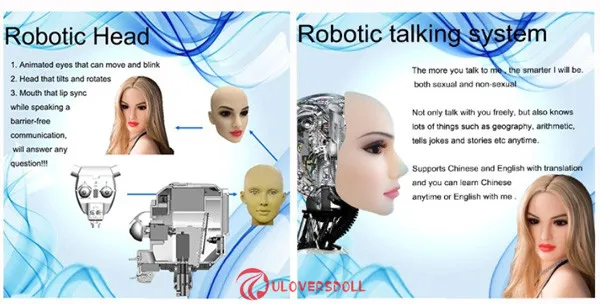With the rapid development of science and technology, the roles of robots in our lives are becoming more and more diverse. Especially in terms of gender, sexual behavior and emotional relationships, the application of Sex Robot has triggered widespread discussion. This article will explore whether robots can perform sexual acts, and the impact of this phenomenon on human society, ethics and psychology.

First of all, defining “sexual behavior” is the basis for understanding this issue. Sexual behavior usually involves physical contact and emotional communication, and robots, especially emotional or sexual robots, are designed to simulate these experiences. Today, there are a variety of sex robots on the market that are able to provide human-like physical contact and can even be programmed to show emotional responses. The design concept of these robots is to meet the sexual needs of users, provide emotional companionship, and even help solve loneliness. Therefore, from the perspective of physical interaction, it can be said that robots are able to “perform sexual acts.”
However, the ethical issues of robots performing sexual acts cannot be ignored. First of all, sexual acts usually involve mutual consent and emotional connection, but robots are essentially unconscious and emotionless. This raises an important question: Should humans have sexual interactions with Life Size Sex Doll that have no consciousness? Some scholars believe that this behavior may affect humans’ views on real interpersonal relationships and make people more emotionally isolated and alienated. In addition, sex robots may reinforce some unhealthy gender concepts and sexual behaviors because they are often designed according to specific gender stereotypes.
In addition, social acceptance is also an important factor. In some cultures, sex with robots may be considered taboo or immoral. This attitude may stem from fear of technology or over-idealization of human relationships. On the other hand, some people believe that Big Ass Sex Doll robots can provide a safe option for those who have difficulty establishing relationships in real life. Regardless of the position, the degree of social acceptance of this phenomenon will directly affect the future development of robot sex.
The psychological perspective also provides another perspective. Sex robots may have a positive impact on the mental health of some users. For example, for those with social disabilities or long-term loneliness, sex robots can provide an emotional support and reduce anxiety and depression. However, dependence on robots may cause people to avoid interacting with real humans, thereby exacerbating loneliness. Therefore, although sex robots can be regarded as a remedy to some extent, they should not be regarded as a substitute for human emotional relationships.

The development of technology has enabled sex robots to continue to evolve, and they may have higher intelligence and emotional simulation capabilities in the future. This progress will trigger more ethical and social discussions. For example, should future sex robots have the ability to “consent”? Should they have the right to choose to participate or refuse to participate in sexual activities when interacting with human users? These issues need to be explored in depth within the framework of social ethics.

In summary, whether robots can perform sexual activities is a complex issue involving multiple levels such as ethics, society, and psychology. From a technical perspective, Sex Robot can provide physical contact and emotional simulation, but from an ethical and psychological perspective, the appropriateness and impact of such behavior need further study. With the advancement of technology and changes in social concepts, future discussions will be more in-depth, and may prompt us to re-examine the relationship between people and technology.

0 comment on Do Robots Have Sex?